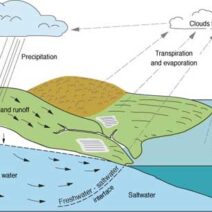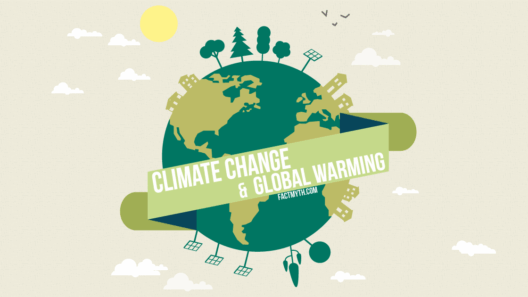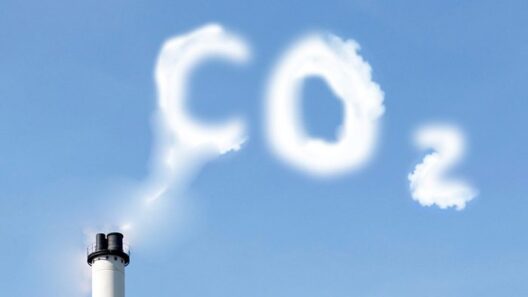Global warming stands as one of the most pressing challenges of our time. It is imperative to understand how human activities have accelerated this phenomenon, ultimately leading to dire consequences for our planet. Here are ten salient ways that human actions are expediting the process of global warming.
1. Fossil Fuel Combustion
The combustion of fossil fuels is perhaps the most significant contributor to global warming. Globally, the burning of coal, oil, and natural gas for energy production emits a substantial volume of carbon dioxide (CO2) into the atmosphere. This excessive release of greenhouse gases traps heat, creating a warming effect known as the greenhouse effect. Notably, transportation, electricity generation, and industrial processes are major sectors where this occurrence festers.
2. Deforestation
Forests play a pivotal role in sequestering carbon from the atmosphere. However, rampant deforestation obstructs this natural process. Trees are cut down for agricultural expansion, urban development, and logging, which not only releases stored carbon but also diminishes the planet’s capacity to absorb CO2. The cumulative effect is a marked increase in atmospheric carbon levels, contributing to an enhanced greenhouse effect.
3. Agriculture and Livestock Production
Agricultural practices, particularly livestock production, are significant contributors to greenhouse gas emissions. Ruminant animals, like cattle, produce methane during digestion, a gas with a much higher global warming potential than CO2. Furthermore, fertilizer application in crop production releases nitrous oxide, another potent greenhouse gas. The combination of these activities significantly contributes to the acceleration of global warming.
4. Industrial Emissions
The industrial sector is a major player in emitting various greenhouse gases. Manufacturing processes release not only CO2 but also other harmful pollutants, such as hydrofluorocarbons (HFCs), which are especially potent in trapping heat. Industries associated with metal production, cement manufacturing, and chemical processing account for a substantial share of global emissions, exacerbating climate change.
5. Waste Management Practices
Improper waste management significantly influences global warming. Landfills emit methane as organic material decomposes anaerobically. As a substantial greenhouse gas, methane has a far more impactful warming potential over a short period than CO2. Additionally, the incineration of waste contributes to CO2 emissions, further aggravating the climate crisis. Implementing more sustainable waste management practices is essential in mitigating these effects.
6. Urbanization and Land Use Changes
The rapid urbanization observed in recent decades has led to drastic land use changes that contribute to global warming. Urban areas tend to have higher temperatures, known as the urban heat island effect, due to altered landscapes and increased energy consumption. These changes can amplify the local climate and exacerbate the impacts of global warming on human health and the environment.
7. Energy Inefficiency
Energy inefficiency in buildings, appliances, and transportation systems exacerbates the demand for fossil fuel energy. Homes and offices that lack proper insulation and outdated appliances consume more energy than necessary. This inefficiency leads to higher fossil fuel consumption, contributing to larger quantities of greenhouse gases being released. Improving energy efficiency standards can significantly reduce emissions and help mitigate global warming.
8. Overconsumption and Consumerism
The culture of overconsumption and rampant consumerism plays a crucial role in accelerating global warming. The production of goods requires energy, water, and raw materials, all of which frequently involve fossil fuel extraction and usage. Furthermore, the logistics of transporting these products release additional emissions. By fostering a mindset of sustainability and reducing consumption, individuals can play a role in addressing this issue.
9. Heating and Cooling Systems
Heating and cooling systems are significant sources of energy consumption, particularly in regions with extreme temperatures. Traditional systems often rely on fossil fuels, emitting large quantities of greenhouse gases. Additionally, air conditioning units often utilize HFCs as refrigerants, potent greenhouse gases that contribute to warming in their own right. Transitioning to renewable energy sources and more sustainable technology can mitigate these impacts.
10. Climate Change Feedback Loops
Many human activities trigger feedback loops that exacerbate global warming. For instance, melting permafrost releases stored methane, intensifying greenhouse gas concentrations, leading to further warming. Similarly, as glaciers and ice sheets melt, less sunlight is reflected, resulting in more heat absorption by Earth’s surface. These feedback mechanisms create a vicious cycle, where human actions not only contribute to climate change but also make it increasingly difficult to combat.
In conclusion, human activities are at the heart of the expedited pace of global warming. From fossil fuel combustion and deforestation to inefficient energy use and overconsumption, our actions have significant ramifications for the planet. The need for a paradigm shift towards sustainable practices is crucial for mitigating climate change effects. Addressing these factors demands collective action at every level—individuals, communities, industries, and nations—working in concert for a more sustainable future.








